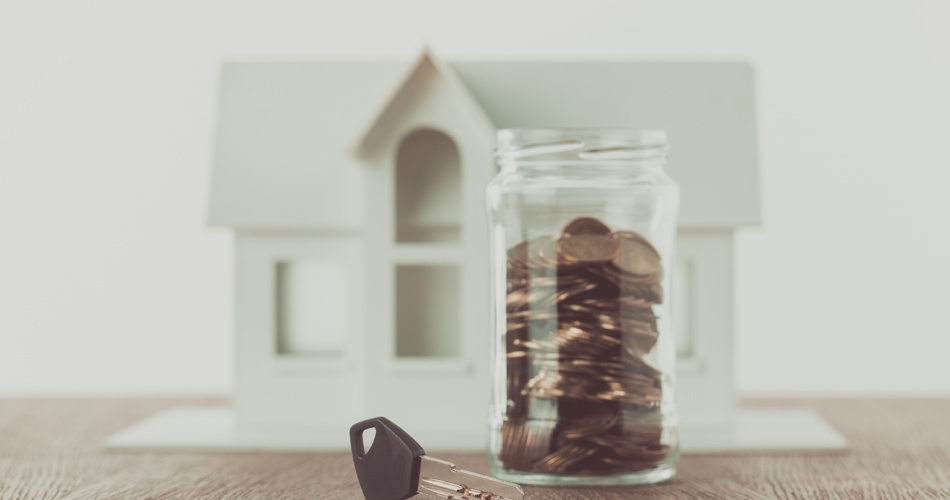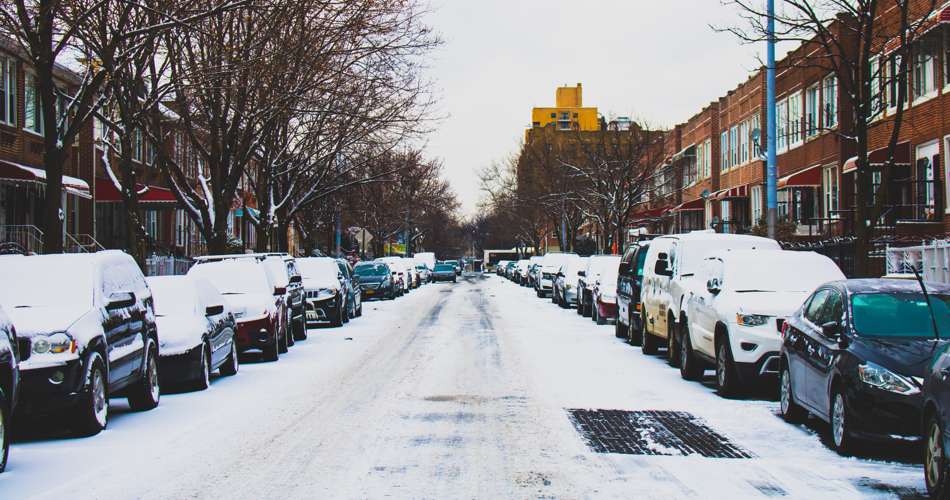Are you tired of throwing your money away on rent? Are you ready to save for your dream home (or a starter home) of your own? Well, you’re in luck. In this blog post, I will teach you how to save for a house while renting. Follow these simple steps, and you will be on your way to homeownership.
It’s no secret that buying a house is a huge financial commitment. But what if you’re not quite ready to take the plunge into homeownership? Or what if you can’t afford to buy a place right now? Don’t worry – there are plenty of ways to save for a house while renting. Here are some tips to get you started.
Have a Solid Savings Strategy
Before you even start thinking about saving for a house, you need to have a solid saving strategy in place. You need to know how much you can realistically afford to save each month, and you need to have a plan for what you’ll do with that money.
Following these steps will help you develop a solid down payment saving strategy to help you to save for a house.
Create a Clear Savings Goal
The more you can sock away towards your down payment each month, the sooner you’ll reach your goal. And remember, the larger your down payment, the lower your loan and monthly mortgage payments will be. So it’s worth it to be saving as much as you can.
Shoot for 20 percent for your down payment as this will save you even more – you won’t need to worry about mortgage insurance.
Open a Down Payment Savings Account
One popular option is to open a savings account specifically for your down payment and to contribute to it regularly. You can even set it up so that a certain amount of your paycheck goes into this account every payday as an automatic transfer. This will help you make consistent progress towards your goal. Try to find an account that offers a higher interest rate as long as you maintain a certain balance.
Press Pause (temporarily) on Retirement Savings
Diverting your retirement savings to a down payment account can be a great way to speed up the process of saving for a house.
There are a few things you need to keep in mind, however. First, you’ll also want to consult with a financial advisor to see how this move will affect your long-term retirement plan. You also want to see if you’re eligible to use some of your retirement savings towards your down payment.
Secondly, make sure you have a plan in place to replenish the retirement savings you’ve diverted to your downpayment account in the future. You don’t want to find yourself house-poor and cash-strapped in retirement!
Streamline Your Budget
Finally, it is important to have a budget and stick to it. Knowing how much you need to save each month will help you stay on track and reach your down payment goal in a timely manner.
There are a ton of mobile apps and different calculators available, so find one that works for you.

Save on Rent
For young people, learning to live frugally is a key life skill. When you’re just starting out, it can be tough to figure out how to save money on rent. But with a little creativity and some helpful tips from experienced renters, it’s definitely doable.
Here are a few ideas on how to reduce your current rent without sacrificing comfort or quality of life. Live like a champ on a budget!
Move to a Smaller or Cheaper Place
If you’re looking to save money for a down payment, one of the best things you can do is move to a smaller or cheaper place. There are a number of ways to do this.
First, consider moving to a smaller home or apartment. This can be a great way to reduce your rent without having to make any major changes to your lifestyle. If you’re currently living in a two-bedroom apartment, for example, try downsizing to a one-bedroom. Or if you have a roommate, see if you can find a place that’s cheaper or smaller so you can lower your share of the rent.
Another option is to move to a less expensive neighbourhood. If you’re currently living in an upscale area, try moving to a more affordable part of town. You may be surprised at how much cheaper your rent will be!
Finally, if you own a car, you may want to consider moving to a place that’s closer to public transportation. This can help you save money on gas and parking fees, and it may even allow you to get rid of your car altogether.
Rent Out Your Spare Room or Parking Space
If you have a spare room in your apartment or house, consider renting it out to a roommate. This can be a great way to make some extra money each month to help cover your rent and save for your down payment.
Similarly, if you have an unused parking space, you may be able to rent it out to someone who needs it. This can be a great way to make some extra money, and it can also help your community by providing a needed service.
Find a Roommate
If you want to drastically reduce your rent, one of the best things you can do is find a roommate, as we mentioned above. This can be a great way to split the cost of rent and other bills, and it can also help you save money on things like groceries and utilities.
Of course, living with a roommate isn’t for everyone. If you’re not sure whether it’s the right decision for you, consider the pros and cons carefully before making a decision.
Consider Listing on Airbnb on the Weekends
If you’re looking for a way to make some extra money, you may want to consider listing your place on Airbnb on the weekends. This can be a great way to earn some extra cash, and it can also help offset the cost of your rent.
Just be sure to check with your landlord first to make sure that this is allowed in your lease.

Look for Ways to Save on Existing Must-Have Services
One of the key ways to save for a house while renting is to look at where you can cut back on your necessary expenses. If you’re spending too much on things like cable, cell phone service, or other must-have services, look for ways to save.
You may be able to lower your expenses by switching to a cheaper service provider. Or you may be able to negotiate a better deal with your current provider.
Here are some key areas to focus on where you should be able to cut back your expenses.
House Bills
House bills can add up fast. If you’re not careful, they can eat into your budget and leave you with less money to save for a down payment on a house.
- Utilities – Take a close look at your current utility bills. Are there any areas where you can cut back? You might be able to negotiable a better deal or switch to a cheaper option. To help keep your costs down, try to be energy-efficient in your home. This means turning off lights when you leave a room, unplugging electronics when they’re not in use, and setting your thermostat to a comfortable but energy-efficient temperature. You may also want to consider switching to LED light bulbs, which use less energy than traditional incandescent bulbs.
- Cable/satellite TV – If you’re paying too much for your cable or satellite TV service, look for ways to reduce your expenses. This is another area where negotiation or switching can help you save money.
- Cell phone service – If you’re paying too much for your cell phone service, look for ways to reduce your expenses. Again, it’s possible you may be able to save money by switching to a cheaper service provider, or you may be able to get a better deal by negotiating with your current provider.
- Internet service – If you’re paying too much for your Internet service, look for ways to reduce your expenses. There are options out there, so find the one that fits your budget.
Banks
Banks fees can add up quickly, and they can eat into your budget and leave you with less money to save for a down payment on a house. Look for ways to reduce or eliminate these fees.
- ATM fees – ATM fees can add up quickly, so it’s important to find a bank that doesn’t charge you when you use them. Look for a bank that has ATMs located near you, so you can avoid fees when you need to withdraw cash. Some banks offer no ATM fees with their savings accounts.
- Overdraft fees – Overdraft fees can be costly, so it’s important to find a bank that doesn’t charge them. Look for a bank that offers overdraft protection, so you won’t be charged a fee if you accidentally overdraw your account.
- Monthly maintenance fees – Monthly maintenance fees can be costly, so it’s important to minimize these as much as possible. Look for a bank that offers ways to waive the fee, such as maintaining a certain balance in your account or signing up for direct deposit. You may also want to consider using a credit union or community bank. Many banks now charge for paper bank statements so switching to digital statements can save you a couple of bucks per month.

Auto Expenses
Auto expenses can add up quickly, so it’s important to find ways to save money on them.
- Gasoline – Gas is one of the biggest expenses when it comes to owning a car. To save money, try to drive less by carpooling, walking, or taking public transportation when possible. You may also want to consider trading in your car for a more fuel-efficient model.
- Insurance – Car insurance is another big expense when it comes to owning a car. To save money, shop around and compare rates from different insurers. You may also want to consider adjusting your deductible, which is the amount you would have to pay out of pocket if you had an accident.
- Maintenance – To save money on maintenance, do your research and find a reputable and affordable mechanic. You may also want to consider doing some of the simpler maintenance tasks yourself, such as changing your own oil or rotating your own tires.
Groceries
Groceries are one of the biggest monthly expenses for most families. Try to plan your meals in advance and make a grocery list so you only buy what you need. You may also want to consider buying in bulk when possible and taking advantage of sales and coupons.
If you enjoy spending time outdoors, consider growing your own vegetables. It’s a great way to save money on groceries.
Reduce Your Spending
Reconsider the little luxuries in your life that may be eating into your budget. These are the things that tend to add up fast and cost us the most money each month. Try to avoid or limit spending money in these non-essential areas. Remember: every dollar you don’t spend is another dollar you can put towards your down payment!
Self-Care
To a certain extent you have to spend money on self-care, but look for ways to reduce it. For example, you could do your own manicures and pedicures. You may also want to consider using cheaper products, such as drugstore shampoo and conditioner instead of salon-quality products. If you regularly visit the spa or go for massages, cut back the frequency to keep more money in your pocket. Do you have a gym membership but find you don’t go very often? Consider cancelling it and working out from home.
Clothing
To save money on clothing, try to shop at thrift stores or outlet shops instead of buying new brand-name clothes. If you do buy new clothes, look for sales and coupons to get the best deal possible. There’s a trade-off in spending more money on clothes that can have multiple uses or are good quality and will last longer.
Dining Out
To save money on dining out, try to cook at home more often and eat out less. When you do eat out, limit it to special occasions and look for deals, such as happy hour specials or kids eat free nights. You could also go with sharing a meal with a friend or family member instead of ordering your own.
Travel
To save money on travel, take advantage of deals, such as package deals or last-minute discounts. Consider travelling during the off-season when prices are typically lower. If you’re flexible with your travel dates, you may be able to find cheaper flights and hotels.
Skipping a vacation and opting for a staycation can be a great way to put a big chunk of money into your down payment fund and still enjoy a vacation.
You can also look at reward programs, like a credit card that gives you travel rewards. This can save you hundreds of dollars on travel expenses, as long as you don’t overspend on your card!
Entertainment
For entertainment, try to find free or low-cost activities in your area. Get outside and explore your neighbourhood or city. There are tons of things you can do for entertainment that you don’t have to pay for.
Look at cutting back on your cable or satellite TV service and renting movies or TV shows instead of buying them. You can even consider subscribing to a few different streaming services and getting rid of your cable service completely.
Vices
Vices such as smoking, drinking, and gambling can be expensive, so find ways to cut back on your consumption. If you smoke, quitting altogether is a great way to save cash (and give you a much higher quality of life). If you drink alcohol, try to limit your intake and stick to cheaper brands. Gambling can also be a costly vice, so consider limiting your trips to the casino or only playing with money you can afford to lose.
Reducing your vices now will make it easier to pay your mortgage each month when you do buy that house you want!
Other Tips To Help You Save For A House
Here are some more great tips to help you start saving for your down payment.
Pay Your Bills on Time
Set up automatic payments so your bills are paid on time every month and you can avoid late payment fees.
Use Credit Cards Wisely
The interest on credit card debt is among the highest interest rates you’ll pay. Set a limit on how much you’ll spend on your credit card each month and pay your card off in full before the due date.
An extra benefit is this will also help you build positive credit history and improve your credit score. A strong credit score can impact your mortgage rate and your monthly mortgage payment when you buy your future home.
Get Rid of Your Debt
You may be able to get a better rate on your mortgage by resolving your outstanding debts ahead of time. This seems counterintuitive because you’re aiming to save money for a house, right?
But when it comes time to start the home buying process and you speak to a lender and apply for a mortgage, remember that your credit score and debt-to-income ratio are important factors that will determine the interest rate you’ll get on your mortgage. It’s in your best interest to lower your debts as much as possible before taking out a mortgage loan.
You may also want to talk to a financial expert or lender to see if it makes sense to get a loan to consolidate debt and reduce your monthly debt servicing payments. If you do this, you have to be sure you don’t incur more debt otherwise you’re back to square one!
Bank Your Income Tax Refund
If you get a tax refund each year, bank it instead of spending it. This is a smart way to give your down payment savings a nice boost every year.
Pick Up A Side Hustle
Do you have a special skill or talent you could monetize? How about taking on a part-time job in addition to your regular full-time gig? Making extra income with a side hustle is a great way to pad your savings account so you can reach your down payment goal more quickly.
If you’re looking to buy a house in the future, start saving now! There are many ways to save money for a down payment, and we’ve outlined some of the best tips in this article. By following these tips, you’ll be on your way to reaching your savings goal in no time. Keep in mind that it’s important to have a realistic goal and timeline in mind when saving for a down payment, as this will help you stay on track. Good luck!









0 Comments